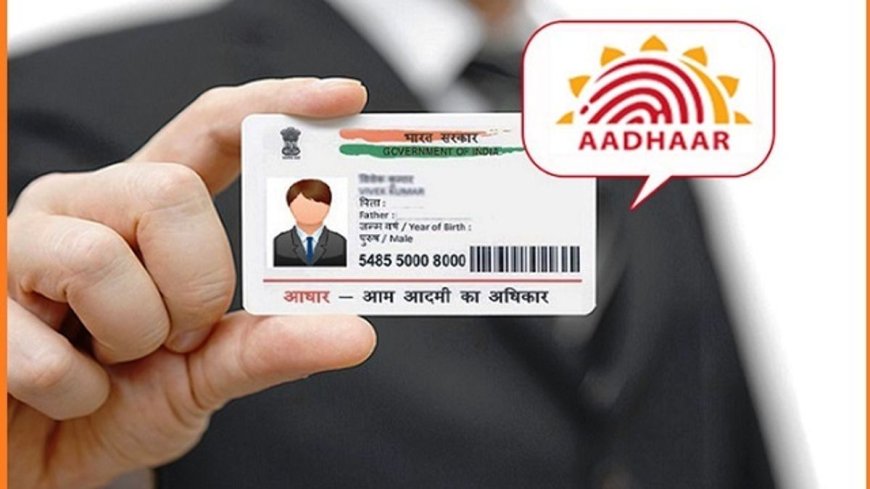Beyond Aadhaar: How Libertarianism Protects Privacy in a Surveillance State
Explore how libertarian principles can safeguard privacy in India’s growing surveillance state, using the Aadhaar system as a backdrop. Learn how less government intervention and more individual control can protect personal freedoms.


In an era where governments increasingly seek to centralize citizen data for governance and control, India’s Aadhaar system has emerged as a powerful yet controversial tool. With over a billion enrolled users, Aadhaar is the world’s largest biometric identification system. While its advocates praise its efficiency in delivering welfare benefits and curbing corruption, critics argue it poses a severe threat to individual privacy and autonomy. This article explores how libertarian principles of decentralization and voluntary systems can offer a path forward that balances governance needs with the protection of individual rights.
The Centralization Dilemma: Aadhaar’s Achilles Heel

At its core, Aadhaar is a centralized database linking sensitive biometric data—fingerprints, iris scans, and personal details—to a unique identification number. While this simplifies tasks like KYC (Know Your Customer) for banks or verifying welfare recipients, it also creates a single point of failure for privacy breaches.
Major concerns include:
- Data Vulnerability: A centralized system is a goldmine for hackers. Aadhaar has faced multiple data leaks, exposing millions of citizens' details to potential misuse.
- Surveillance State: Linking Aadhaar to various services like mobile numbers, bank accounts, and tax filings increases the government’s ability to track citizens’ activities. This level of surveillance erodes personal freedom.
- Mandatory Compliance: Although initially marketed as voluntary, Aadhaar is now de facto mandatory for accessing essential services, from education scholarships to pensions. This coercion undermines individual choice.
These issues highlight the dangers of centralization: efficiency at the cost of privacy and freedom.
The Libertarian Alternative: Decentralization and Voluntary Systems

Libertarianism champions individual freedom, limited government intervention, and decentralized solutions. Applying these principles, we can imagine an identification system that is voluntary, decentralized, and privacy-focused. Here’s how:
-
Decentralized Identity Systems:
Instead of a single centralized database, identity verification can be decentralized using blockchain technology. Blockchain allows individuals to control their personal data while granting access to specific entities only when necessary. For example, instead of sharing your entire Aadhaar number for a bank account, a blockchain-based ID could verify just your eligibility without revealing sensitive information.Real-world example: Estonia’s e-Residency program uses blockchain for secure, decentralized digital identity, allowing individuals to control their own data.
-
Voluntary Participation:
Libertarian principles reject coercion. An ideal identification system should not force citizens to participate to access essential services. Instead, incentives (e.g., faster processing for voluntary users) can encourage adoption without violating individual rights. -
Private Competition in ID Verification:
Why should only governments manage identification systems? Private organizations or consortia could provide identity verification services, competing to offer better security and efficiency. Citizens could choose a provider based on trust, much like they select internet or telecom services. -
Privacy-First Design:
Any identification system should follow a zero-knowledge proof model, where only the minimum required information is shared. For instance, instead of revealing your exact age for age-restricted purchases, the system simply confirms whether you are over the required age.
How Libertarianism Addresses Practical Concerns

Critics often argue that decentralization sacrifices efficiency, particularly in a vast and diverse country like India. However, libertarian solutions can address these concerns effectively:
- Cost-Effective Implementation: Blockchain-based systems, while initially expensive, reduce long-term costs associated with maintaining large centralized servers.
- Reduced Corruption: Decentralization minimizes opportunities for bureaucratic interference, reducing corruption in identity verification processes.
- Greater Trust: When citizens have control over their own data, public trust in governance systems improves, increasing voluntary participation.
The Way Forward for India
Aadhaar, despite its flaws, has laid the groundwork for digital governance in India. The challenge now is to evolve this system into one that respects individual freedoms and minimizes risks. By adopting libertarian principles, India can transform Aadhaar into a more decentralized, privacy-focused model:
- Adopt Blockchain for Sensitive Data: Transition Aadhaar’s backend to a decentralized system, ensuring that no single authority holds all data.
- Make Aadhaar Truly Voluntary: Remove penalties for non-enrollment and offer alternative methods of identification for public services.
- Encourage Private ID Providers: Allow private companies to issue identity credentials verified by the government, creating competition and innovation in the space.
Conclusion: Safeguarding Liberty in the Digital Age
As India marches toward becoming a digital economy, the need to protect individual privacy cannot be overstated. Aadhaar, in its current form, represents the risks of a centralized surveillance state. Libertarianism offers a compelling vision for the future—one where decentralization, voluntary systems, and individual autonomy form the bedrock of governance.
In the words of Friedrich Hayek, “We must make the building of a free society once more an intellectual adventure.” It’s time for India to embark on that adventure, ensuring that technology empowers citizens without infringing on their fundamental freedoms.
What's Your Reaction?


















































